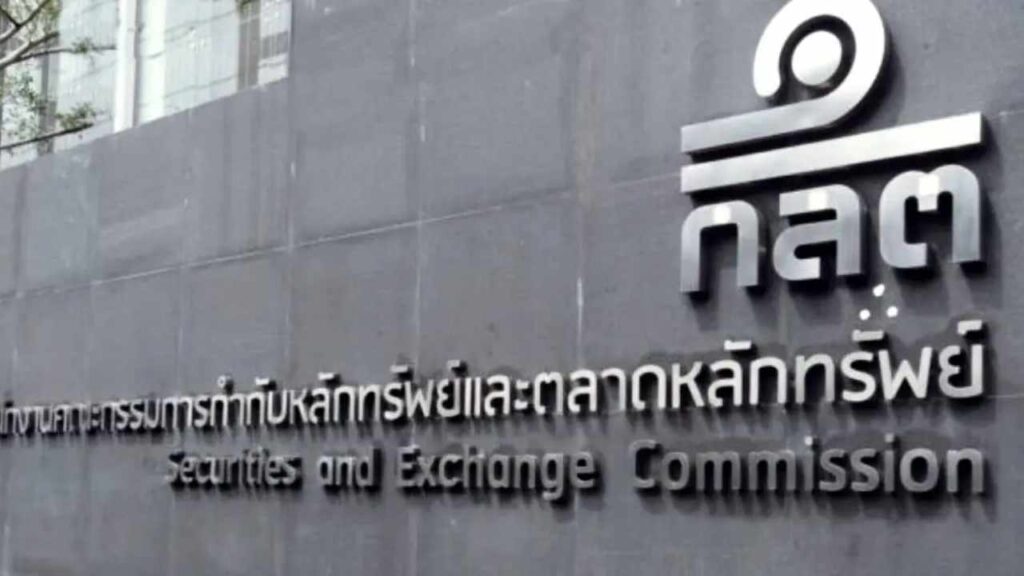FTX attorney Andy Dietderich recently stated the bankrupt crypto exchange “recovered $5 billion in cash and liquid cryptocurrencies,” media reported this week.
In an 11 January statement to US bankruptcy judges in Delaware, FTX was “working to rebuild transaction history.” The collapsed exchange’s total amount of missing funds was also “still unclear,” it added.
Reports show recovered assets do not include the Bahamian Securities Commission’s seized assets from FTX. This mostly includes the exchange’s native FTT token.
He also noted FTX would sell $4.6 billion in non-strategic investments such as subsidies from its Japanese and European branches. The two segregated from FTX’s main operations.
FTX Japan previously had a sponsorship agreement with online multiplayer game League of Legends. Following the collapse, the branch pledged to return funds to affected clients.
Judge John Dorsey, who presides over the case, also approved FTX’s request to sell off FTX Europe and other branches. According to Dietderich, FTX has not committed to a sale to date.
Background on FTX Crisis
The news comes after FTX faced a massive liquidity crisis in November. This triggered a huge bank run on its FTT token and the subsequent collapse of the firm, leaving over $8 billion in liabilities.
Courts later approved FTX’s request to anonymise client names for three months after identity theft claims. Currently, US courts have organised a task force to recover the crypto funds.
The news comes after the exchange’s disgraced ex-chief executive, Sam Bankman-Fried, pleaded not guilty to all criminal charges. According to reports, the crypto exchange splurged $40 million on travel, hotels, and
Caroline Ellison, research wing Alameda Research’s ex-CEO, struck a plea deal with courts. This would drop seven of the eight charges previously faced, which totalled 110 years in prison.
Crypto exchange Zipmex has become the centre of a new Securities and Exchange Commission of Thailand (Thai SEC) investigation, reports have found.
According to Bloomberg, Thailand has been monitoring Zipmex for suspicious activities that could breach local regulations. Such restrictions apply to digital asset service providers operating in the country.
The ongoing developments between the two entities began later in 2022. On 7 September the same time, the government agency filed police reports stating Zipmax provided “incomplete” details on its compliance materials.
The organisation has set a 12 January deadline to determine whether it operates as a “digital asset fund manager without permission.” The cryptocurrency exchange could be forced to obtain permits to continue functioning in the Southeast Asian nation.
Lock Out, Crack Down on Crypto?
The news comes as Thoresen Thai Agencies PCL subsidy V Ventures aims to buy out Zipmex for roughly $100 million USD. This could potentially unlock client accounts in April this year with acquisition funds.
Financial woes hit the embattled cryptocurrency exchange on 21 July last year, forcing the firm to block access to accounts and funds. Subsequently, the firm reopened withdrawals the following day.
The incident exposed nearly $53 million USD to risk, hitting crypto lending firms Celsius and Babel Finance. This has prompted Thailand, Australia, Israel, South Korea, the United States, and others to crack down on crypto providers with tougher regulations.
Governments have voiced concerns amid the ongoing bear crypto market and collapse of now-bankrupt crypto firm FTX, sparking calls for tightened restrictions.
Internet investigator Stephen “Coffeezilla” Findeisen has received lawsuit threats due to a row on YouTube, recent tweets have found.
YouTube personality Logan Paul threatened the lawsuit in a recent video, triggering social media to erupt over the matter. Findeisen released a three-part video series accusing Paul’s CryptoZoo crypto project as a “scam,” leading to the online row.
new video
— Logan Paul (@LoganPaul) January 3, 2023
My Response To Coffeezilla’s Scam Allegations
important that you watchhttps://t.co/KbsWsXll49 pic.twitter.com/eYOHDfC2IZ
Making Amends
In a 6 January tweet, Paul pledged to rescind a potential defamation lawsuit for Findeisen’s videos. The former later apologised for his video response to the Coffeezilla videos.
response video to Logan Paul drops today. pic.twitter.com/ib6DNfkV6Z
— Coffeezilla (@coffeebreak_YT) January 6, 2023
In a statement, Paul said: “It was rash and misaligned with the trust issue at hand, so I called him today and apologized. The war is not with Coffee. In fact, I’m grateful he brought this to light. I will be taking accountability, apologizing, and coming forward with a plan in the near future.”
Logan called me. He said he’s deleting the two responses, and is dropping the lawsuit threats.
— Coffeezilla (@coffeebreak_YT) January 7, 2023
I believe he’s making a 3rd response, which I’ll be delaying my video to include. Hopefully this time he takes accountability and refunds the victims of CryptoZoo. That’s what matters. https://t.co/ElKX2d9mY0
Responding to the apology, Coffeezilla replied: “I believe he’s making a 3rd response, which I’ll be delaying my video to include. Hopefully this time he takes accountability and refunds the victims of CryptoZoo. That’s what matters.”
Bitcoin (BTC) has begun trading around $17,000 this week following a major spike in value from events in the United States in early January.
Trading data showed the figures with the exchanges showing flash volatility due to a US economic data report from the Bureau of Labour Statistics (BLS).
This has revealed the largest rebound for the cryptocurrency since 20 December.
The US economy added 223,000 jobs in December, according to the monthly employment report from the Bureau of Labor Statistics https://t.co/ovCkZ7Zl74 pic.twitter.com/kYBtIfBZqw
— CNN (@CNN) January 7, 2023
At the time, the BLS reported an increase of 223,000 jobs, despite interest rates tightening at the Federal Reserve. Despite the optimistic numbers, wage growth slowed to its lowest point in roughly two years.
According to TradingView’s one-day candle chart, Bitcoin fell from $17,800 USD to settle at $16,923.
A Consumer Price Index (CPI) report below 7 percent would indicate a faster drop in inflation rates, leading to monthly highs of around $19,00 according to Satoshi Flipper.

On-Chain Data Woes
Glassnode, an on-chain analytics firm, also unveiled difficulties across Bitcoin that showed a decreasing realised cap. This shows aggregate prices at the last movement of Bitcoin supply, indicating losses from BTC sales.
The 2022-23 #Bitcoin Bear Market has seen the Realized cap drawdown by -18.8%, the second largest in history, and eclipsed only by the pico-bottom of the 2011 bear.
— _Checkɱate 🔑⚡🌋☢️🛢️ (@_Checkmatey_) January 7, 2023
Investors have weathered a total of $88 Billion in Net Realized losses.
Workbench: https://t.co/UGFvkSul4e pic.twitter.com/uqKnCNn4sg
Checkmate, the company’s top on-chain commentator, said in a tweet,
“The 2022-23 Bitcoin Bear Market has seen the Realized cap drawdown by -18.8%, the second largest in history, and eclipsed only by the pico-bottom of the 2011 bear. Investors have weathered a total of $88 Billion in Net Realized losses.”
Now-bankrupt cryptocurrency platform FTX spent millions of dollars on food, swanky accommodation, and flights around the world nine months before it went into administration, documents reveal.
According to court filings cited by the Business Insider report, FTX Digital Markets stumped up over $40 million USD. This took place from January to September last year, just months ahead of its collapse on 11 November.
Room and Board (of Executives)
Despite the company citing alleged “liquidity issues” for its bankruptcy, it spent over $15 million for luxury accommodation. The Albany Hotel, where disgraced chief executive Sam Bankman-Fried resided prior to his arrest, cost roughly $5.8 million of the firm’s hotel expenses.
Business Insider explained:
“In 2021, one of the Albany’s founders told Fortune that in high season, accommodation at the resort can cost as much as $60,000 per night. $3.6 million of FTX’s hotel spend went to the Grand Hyatt, a 4-star hotel where the cheapest room costs $369 a night. In March 2022, the hotel hosted the Caribbean reception for Prince William and Kate, Princess of Wales. FTX spent $28,954 at the hotel the same month”
FTX splashed out a further $3.6 million to the four-star Grand Hyatt, where Britain’s Royal Family stayed in March last year. Executives and others from the company racked up $800,000 in expenses at the five-star Rosewood Resort.
Living La Vida Loca
Also, the firm spent nearly $7 million on food and leisure, where half of the bill paid for catering. FTX staff also spent around $4 million on travel costs and $500,000 on deliveries and donated regularly to charities and organisations in the country.
The Bahamian company also provided local staff with a “full suite of cars and gas covered for all employees [and] unlimited, full expense covered trips to any office globally,” the report said.
Additional expenses included private flights for Amazon orders to Miami as the firm does not deliver to the island country. According to a former staff member, FTX’s lavish expenditures were “cult-like” and the business was “iconically and moronically inefficient.”
Room Without a View
Bahamian authorities arrested Sam Bankman-Fried from his luxury accommodation in mid-December last year. He has plead not guilty in early January to eight charges, which include fraud, defrauding investors, and others. He awaits further hearings from at the US District Court in the Southern District of New York.
Caroline Ellison, the former chief executive for Alameda Research, agreed to a plea deal with courts to eliminate seven of eight counts of fraud, funds mismanagement, and other offences.
New York Attorney General, Letitia James, filed a lawsuit on Thursday against a former executive of bankrupt cryptocurrency lending platform Celsius.
Alex Mashinsky, the founder and ex-chief executive of the crypto platform, issued “false and misleading statements,” leading to massive losses for investors, she said in her lawsuit.
In a tweet on Friday, she said that “defrauding hardworking New Yorkers is not only shameful, it’s also illegal.”
Defrauding hardworking New Yorkers is not only shameful, it's also illegal.
— NY AG James (@NewYorkStateAG) January 7, 2023
We will always work to protect people from the dangers of the cryptocurrency market.https://t.co/VNF5x8BqFj
The fraud issues have cost over 26,000 residents in New York billions in cryptocurrency investments, litigation said. It added the company failed to represent its financial health and follow regulations at the time.
She said in her statement,
“As the former CEO of Celsius, Alex Mashinsky promised to lead investors to financial freedom but led them down a path of financial ruin. The law is clear that making false and unsubstantiated promises and misleading investors is illegal. Today, we are taking action on behalf of thousands of New Yorkers who were defrauded by Mr. Mashinsky to recoup their losses.”
She continued: “Today, we are taking action on behalf of thousands of New Yorkers who were defrauded by Mr. Mashinsky to recoup their losses. My office will stay vigilant and ensure that bad actors trying to take advantage of New York investors are held accountable.”
The news comes after Celsius declared Chapter 11 bankruptcy in July last year, locking scores of customers from their accounts and forcing Mashinsky to resign.
Courts issued a verbal order for Celsius to pay back its clients a total of $44 million USD, reports revealed. The company recently struck a deal with advisors and stakeholders to declare custodial accounts as the property of users and not centralised wallet holders.
New York authorities have arrested developers of a fake Mutant Ape Yacht Club non-fungible token (NFT) collection and slapped them with fraud charges.
Police arrested the developers on Wednesday last week at John F Kennedy International Airport due to charges of rug-pulling investors, leading to $2.9 million in losses.
The entire collection contained 6,797 NFTs on the Ethereum blockchain, valued at 567 Ether (ETH), but sales plummeted at the start of last year.
Comments on Rug Pull
Homeland Security Investigations (HSI) lead Special Agent, Ivan J Arvelo, said in a Department of Justice (DoJ) statement,
“As alleged, Aurelien Michel perpetrated a ‘rug pull’ scheme – stealing nearly $3 million from investors for his own personal use. Purchasers of Mutant Ape Planet NFTs thought they were investing in a trendy new collectible, but they were deceived and received none of the promised benefits.”
He added: “HSI uses our extensive experience investigating financial crime in conjunction with our cutting edge cyber capabilities to uncover fraud and bring the perpetrators to justice.”
A further statement from Internal Revenue Service (IRS) agent Thomas Fattorusso noted that Michel had defrauded investors with false representations, “things, giveaways, tokens with staking features, and merchandise collections.”
He added that Michel withdrew all the funds after selling the NFTs.
Citing comments from Michel, he had stated on social media that he had initiated the rug pull, adding “we never intended to rug but the community went way too toxic.”
Following his exit from the project, a new community of content creators under the HTMadge pseudonym have aimed to resurrect the collection.
Mango Markets and Cybersecurity Concerns
The news comes after Mango Markets hacker Avraham Eisenberg tweeted his successful rug pull Mango Inu “shitcoin,” leading to roughly $117 million in lost funds.
He claimed in his Twitter feed that he “did nothing wrong” and his actions were “legal.”
He said in October last year that he had deployed coins to fight “exploiting bots” buying up the tokens. The automated programmes buy specific cryptocurrencies based on market capitalisation, availability, and other algorithmic parameters.
According to a recent CertiK report, 2023 would remain a year hit by cybersecurity risks, fraud, malicious attacks, and rug pulls. In 2022, the industry lost roughly $3.7 billion, with $595 million in November alone.
Singaporean courts subpoenaed Three Arrows Capital (3AC) founders Kyle Davies and Zhu Su on Thursday last week.
In a public tweet, 3AC Liquidation, the official court-appointed joint liquidators of the firm, published the documents on their feed at the time.
The court order shows authorities summoning Davies, a US citizen, to appear before judges to resolve concerns over the collapse of the Singaporean firm.
@KyleLDavies jpg copies of the subpoena are attached to this tweet by way of service. An unredacted copy of the subpoena was served via email and can be provided upon request. pic.twitter.com/XAYzQ4Oveo
— 3ACLiquidation (@3ACLiq) January 5, 2023
Liquidators for the massive company aim to receive key evidence from the company, including accounts, private keys, wallets, and seed phrases, among others. It also aims to investigate data on the firm’s securities, unregistered shares, and accounts on its exchanges.
It said that the founders should “produce at the time, date, and place set forth below the following documents, electronically stored information, or objects, and to permit inspection, copying, testing, or sampling of the material.”
The subpoena requested that Su and Davies “furnish all documents available to you regardless of whether this information is possessed directly by you, your agents, representatives, employees, or investigators; or by any other legal or non-legal entities controlled by or in any manner presently or precisely affiliated with you.”
The news comes after the firm filed for bankruptcy in July last year, triggering Singapore’s Monetary Authority (MAS) to crack down on cryptocurrency platforms.
The government body passed several measures to regulate digital payment token service providers (DPTSP) and stablecoin issuers. Coins affected included Bitcoin, Ethereum, and XRP, and aim to protect consumers from risk and boost stablecoin transactions.
Magic Eden, a platform for buying and selling non-fungible tokens (NFT), vowed to refund money to victims of fraudulent purchases.
A Thursday statement revealed an exploit in its Activity Indexer for the platform’s Pro Trade and Snappy Marketplace tools. Some users trading on the services bought fake NFTs from the fraudulent exploit, which circumvented verification processes.
The following day, Magic Eden revealed users purchased 13 fraudulent NFTs on five collections in 27 transactions, totalling 1,100 Solana or roughly $15,000.
The company tweeted concerns on the fake NFTs on Wednesday. Scammers hit sales from two major Solana-based collections y00ts and ABC, with Magic Eden raising concerns on the latter.
Earlier today, unverified NFTs were being shown as part of verified collections on ME. In the last day, impact was contained to 25 unverified NFTs sold in 4 collections.
— Magic Eden 🪄 (@MagicEden) January 4, 2023
We've resolved the issue and will refund those affected. Now, no one can buy unverified NFTs on ME.
Update: Magic Eden is safe for trading. Users will not be able to buy unverified NFTs on the platform.
— Magic Eden 🪄 (@MagicEden) January 4, 2023
Over the last day, the issue was contained to 25 unverified NFTs in 4 collections. We are confirming impact beyond the last 24h.
More: https://t.co/l7eAJtyBDm
It added: “Please hard refresh your browsers to make sure you are only seeing verified collection items. We’re monitoring the situation & will use this thread for updates.”
The platform concluded after resolving the incident that it was “safe for trading” and that users could no longer buy unverified NFTs on its platform.
It added: “Over the last day, the issue was contained to 25 unverified NFTs in 4 collections. We are confirming impact beyond the last 24h.”
2023 ‘Hack Jobs’ Set to Hit Crypto Market
The news comes after hackers struck the website with pornographic photos and pictures from The Big Bang Theory, triggering Magic Eden to issue a statement on the “unsavory images.”
Additional hacks have taken place on Binance and hot wallet hacks on Derebit, among others, leading to a tightening of cybersecurity protocols and responses to protect crypto investors.
2023 is expected to be a major year for cybersecurity threats and breaches, prompting crypto platforms to remain vigilant, analyses from a CertiK report revealed this week.
The United States House of Representatives remains deadlocked as it selects a new House Speaker amid the ongoing FTX debacle. The 118th Congress awaits the appointment which, to date, may push back future committee hearings to resolve the FTX bankruptcy scandal.
The stalemate effectively halts the functionality of the legislative branch. Without the capability to appoint new representatives, lawmakers cannot pass new legislation.
Rep.-elect Anna Paulina Luna nominates Rep. Byron Donalds for Speaker of the House: "I want to clarify something real quick to our colleagues across the aisle… in no way shape or form will a Democrat ever hold the gavel to a Republican-controlled House." pic.twitter.com/DpRVUz0gHN
— Forbes (@Forbes) January 5, 2023
The House Financial Services Committee was set to investigate FTX’s bankruptcy and subsequent collapse in December. The ongoing power vacuum prevents lawmakers from introducing critical bills to regulate cryptocurrencies and resolve the current crisis.
The news comes after legislators denied California Kevin McCarthy the coveted position after a 10th voting session, namely after Republicans gained a majority in the House Chamber.
Following the 2022 midterm elections, Congress has failed to appoint a replacement after a round of voting in an incident not seen since 1923.
Hakeem Jeffries, McCarthy’s Democratic opponent, has won 212 votes in multiple rounds, blocking the latter from earning a majority vote in the House of Representatives.
Attention on the House (obviously), but don't forget about the Senate ceremonial swearing in ceremony with @VP Harris. Lots of interactions with senators and their families.
— Jeremy Art (@cspanJeremy) January 3, 2023
Full video here: https://t.co/uNNSTE7qCC pic.twitter.com/yVNtoAahmM
The unprecedented situation only leaves the Clerk of the House of Representatives, Cheryl Johnson, with minimal duties as Capitol Hill waits for a new Speaker. Despite this, the Senate remains functional and has begun swearing in leaders in early January.











